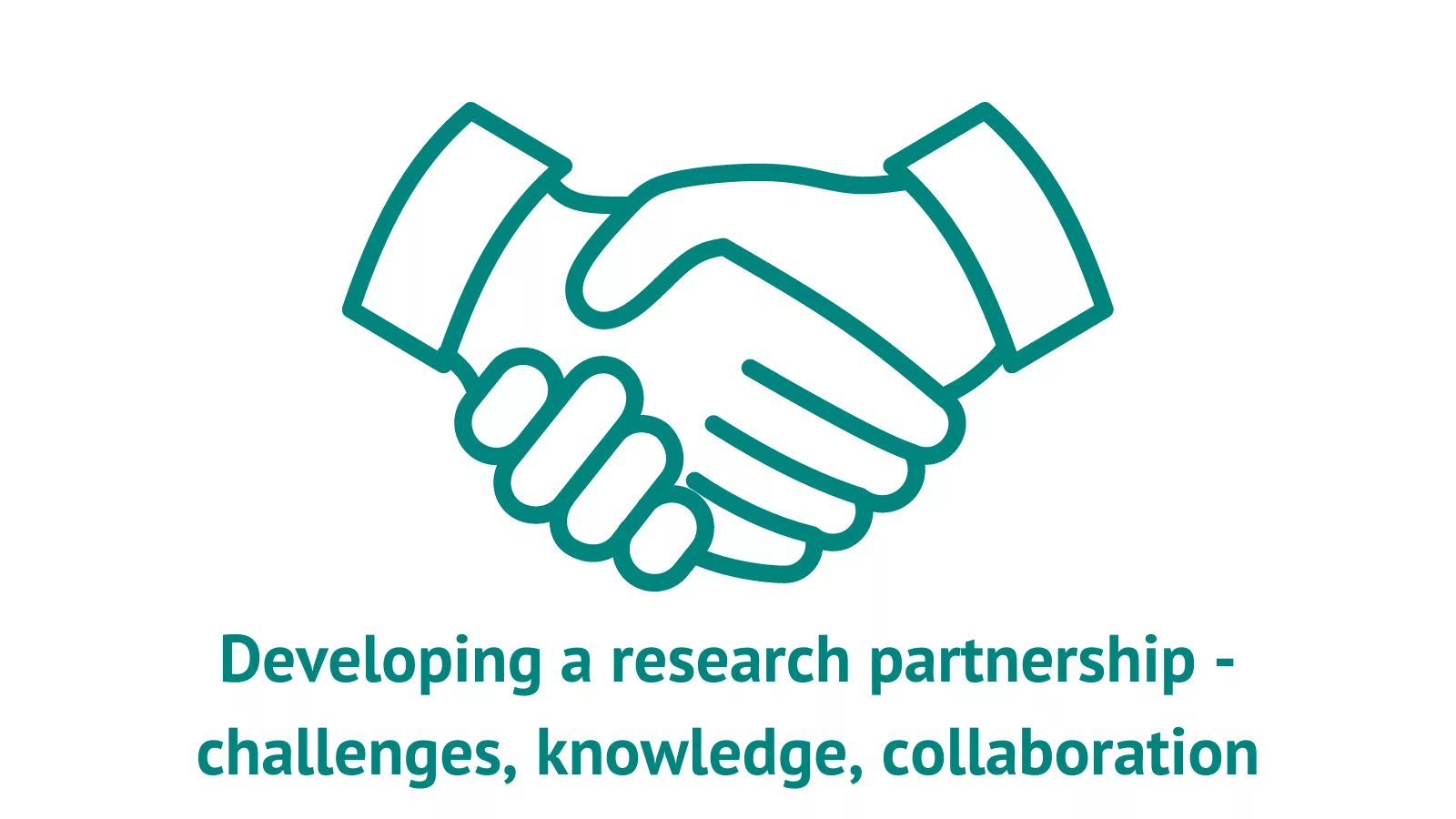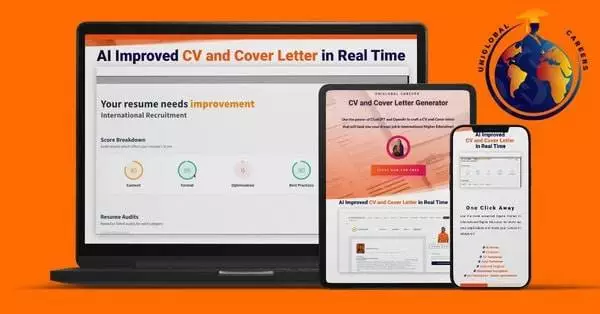In the field of international education, job interviews for positions in international research partnerships can be highly competitive, requiring candidates to have a strong understanding of the role and responsibilities involved. To help you prepare, this article will explore the most common interview questions you may encounter during the hiring process and provide insights on how to answer them effectively.
Understanding the Role of International Research Partnerships in Education
Before we delve into the interview questions, it is important to grasp the significance of international research partnerships in the field of education. These partnerships play a vital role in promoting global collaboration, knowledge sharing, and innovation. By working together with international organizations, institutions, and researchers across borders, these partnerships contribute to the development of best practices, policy improvements, and evidence-based decision-making in education.
International research partnerships are crucial for fostering cultural exchange, enhancing the quality of education, and addressing global challenges. They provide opportunities to learn from different educational systems, explore diverse perspectives, and develop strategies that can benefit students and educators worldwide. By actively participating in these partnerships, educational institutions can expand their reach, increase their impact, and create meaningful connections with experts and peers from around the globe.
One of the key benefits of international research partnerships is the opportunity for cultural exchange. When researchers from different countries collaborate, they bring with them their unique perspectives, experiences, and knowledge. This diversity enriches the research process and allows for a more comprehensive understanding of educational issues. Through discussions, debates, and shared experiences, researchers can challenge their assumptions, broaden their horizons, and develop innovative solutions to complex problems.
In addition to cultural exchange, international research partnerships also contribute to the enhancement of the quality of education. By collaborating with experts from different countries, researchers can learn about successful educational practices and implement them in their own contexts. This exchange of knowledge and expertise leads to the improvement of teaching methods, curriculum design, and assessment strategies. Ultimately, it benefits students by providing them with a more holistic and effective learning experience.
Furthermore, international research partnerships are essential in addressing global challenges in education. With the increasing interconnectedness of the world, it is crucial to tackle issues such as access to education, equity, and quality on a global scale. By forming partnerships with researchers from diverse backgrounds, institutions can combine their resources, expertise, and influence to develop innovative solutions and advocate for policy changes. These partnerships enable the sharing of best practices, identification of common challenges, and collaborative efforts to overcome them.
The Importance of International Research Partnerships
International research partnerships are crucial for fostering cultural exchange, enhancing the quality of education, and addressing global challenges. They provide opportunities to learn from different educational systems, explore diverse perspectives, and develop strategies that can benefit students and educators worldwide. By actively participating in these partnerships, educational institutions can expand their reach, increase their impact, and create meaningful connections with experts and peers from around the globe.
One of the key benefits of international research partnerships is the opportunity for cultural exchange. When researchers from different countries collaborate, they bring with them their unique perspectives, experiences, and knowledge. This diversity enriches the research process and allows for a more comprehensive understanding of educational issues. Through discussions, debates, and shared experiences, researchers can challenge their assumptions, broaden their horizons, and develop innovative solutions to complex problems.
In addition to cultural exchange, international research partnerships also contribute to the enhancement of the quality of education. By collaborating with experts from different countries, researchers can learn about successful educational practices and implement them in their own contexts. This exchange of knowledge and expertise leads to the improvement of teaching methods, curriculum design, and assessment strategies. Ultimately, it benefits students by providing them with a more holistic and effective learning experience.
Furthermore, international research partnerships are essential in addressing global challenges in education. With the increasing interconnectedness of the world, it is crucial to tackle issues such as access to education, equity, and quality on a global scale. By forming partnerships with researchers from diverse backgrounds, institutions can combine their resources, expertise, and influence to develop innovative solutions and advocate for policy changes. These partnerships enable the sharing of best practices, identification of common challenges, and collaborative efforts to overcome them.
Key Responsibilities in International Research Partnerships
When discussing the responsibilities associated with international research partnerships, it is important to highlight several key aspects. These may include identifying potential research collaborators, establishing and maintaining relationships with partners, coordinating research activities, managing project timelines and budgets, conducting data analysis and interpretation, and disseminating research findings through publications and conferences. Each of these responsibilities requires a high level of organization, communication, and cross-cultural understanding.
Identifying potential research collaborators is a critical first step in establishing international research partnerships. Researchers need to identify individuals or institutions that have complementary research interests and expertise. This involves conducting literature reviews, attending conferences, and networking with colleagues to find potential collaborators. Once potential partners are identified, researchers need to establish and maintain relationships with them. This involves regular communication, meetings, and collaborative planning to ensure that the partnership remains strong and productive.
Coordinating research activities is another important responsibility in international research partnerships. This includes developing research plans, designing studies, collecting and analyzing data, and interpreting research findings. Researchers need to work together to ensure that research activities are well-coordinated and aligned with the goals of the partnership. This may involve regular meetings, shared project management tools, and clear communication channels to facilitate collaboration.
Managing project timelines and budgets is crucial to the success of international research partnerships. Researchers need to set realistic timelines, allocate resources effectively, and monitor progress to ensure that projects stay on track. This requires careful planning, budgeting, and project management skills. Researchers also need to be mindful of potential cultural differences in terms of work pace, communication styles, and expectations to avoid misunderstandings and conflicts.
Finally, disseminating research findings through publications and conferences is an important responsibility in international research partnerships. Researchers need to share their findings with the wider academic community to contribute to knowledge advancement and inform policy and practice. This involves writing research papers, presenting at conferences, and engaging in discussions with other researchers. By disseminating their findings, researchers can make a meaningful impact on the field of education and inspire further research and collaboration.
Preparing for Your Interview: What to Expect
Now that we have established the importance and responsibilities of international research partnerships, let’s focus on how to prepare for your interview. Understanding the interview process and researching the organization and role beforehand are essential steps to increase your chances of success.

Understanding the Interview Process
Typically, the interview process for a job in international research partnerships may involve multiple stages, including initial screenings, phone or video interviews, and in-person or virtual meetings with various stakeholders. During these interviews, you can expect a combination of behavioral questions, technical questions related to research methodology and analysis, as well as questions assessing your knowledge and understanding of international education trends and policies.
Researching the Organization and Role
Prior to your interview, it is crucial to conduct thorough research on the organization and the specific role you are applying for. Familiarize yourself with the organization’s mission, values, ongoing projects, and recent publications. Additionally, consider how your skills, experiences, and vision align with the goals and objectives of the organization. This will allow you to demonstrate a genuine interest and preparedness during the interview.
Most Common Interview Questions for International Research Partnerships
Now let’s dive into the most common interview questions you may encounter for a job in international research partnerships.
Questions about Your Experience and Skills
During the interview, you can expect questions that probe into your previous experience in international research partnerships or similar roles. Be prepared to discuss specific projects you have worked on, the methodologies you used, and the outcomes and impact of your research. Additionally, highlight your analytical skills, problem-solving abilities, and your ability to collaborate effectively in cross-cultural settings.
Questions about Your Understanding of International Education
As international research partnerships are closely tied to the field of education, interviewers may ask questions that assess your understanding of global education trends, challenges, and opportunities. Demonstrating your knowledge of current research in the field, awareness of educational policies and initiatives, and ability to navigate cultural nuances will help you stand out as a qualified candidate.
Scenario-Based Questions
Employers often use scenario-based questions to evaluate how candidates would handle real-life situations in international research partnerships. These questions may require you to demonstrate your problem-solving skills, adaptability, and decision-making abilities. Prepare by reflecting on your past experiences and think critically about the potential challenges that may arise in the context of international research partnerships.
How to Answer Interview Questions Effectively
Now that we have covered the types of questions you may encounter, let’s explore effective strategies to answer them.
Using the STAR Method for Behavioral Questions
When responding to behavioral questions that require you to provide examples of past experiences, consider using the STAR method. Start by describing the Situation, then explain the Task at hand, the Actions you took, and finally, the Results you achieved. This structured approach will help you provide clear and concise answers that highlight your skills, accomplishments, and contributions.
Demonstrating Your Knowledge of International Education
Throughout the interview, be proactive in demonstrating your knowledge and understanding of international education. Whenever appropriate, refer to relevant research studies, publications, or initiatives that showcase your awareness of current trends and best practices. This will not only underscore your expertise but also convey your passion and commitment to the field.
Post-Interview Follow-Up: Essential Steps
After the interview concludes, it is essential to follow up with a thank-you note and take steps to stay informed about your application status.

Sending a Thank You Note
A personalized thank-you note expressing your appreciation for the opportunity to interview can leave a lasting impression on the interviewer. It also provides an additional chance to reiterate your qualifications and interest in the position. Make sure to send a well-crafted thank-you email or letter within 24-48 hours of the interview.
Following Up on Your Application Status
If you haven’t received any updates on your application within the given timeframe, it is acceptable to follow up with the employer. Send a polite email inquiring about the status of your application and expressing your continued interest in the position. This demonstrates your professionalism and enthusiasm for the role.
By familiarizing yourself with the role, responsibilities, and common interview questions in the field of international research partnerships, you can enter your interview with confidence and increase your chances of success. Remember to showcase your expertise, cultural awareness, and passion for international education throughout the process. Good luck!


